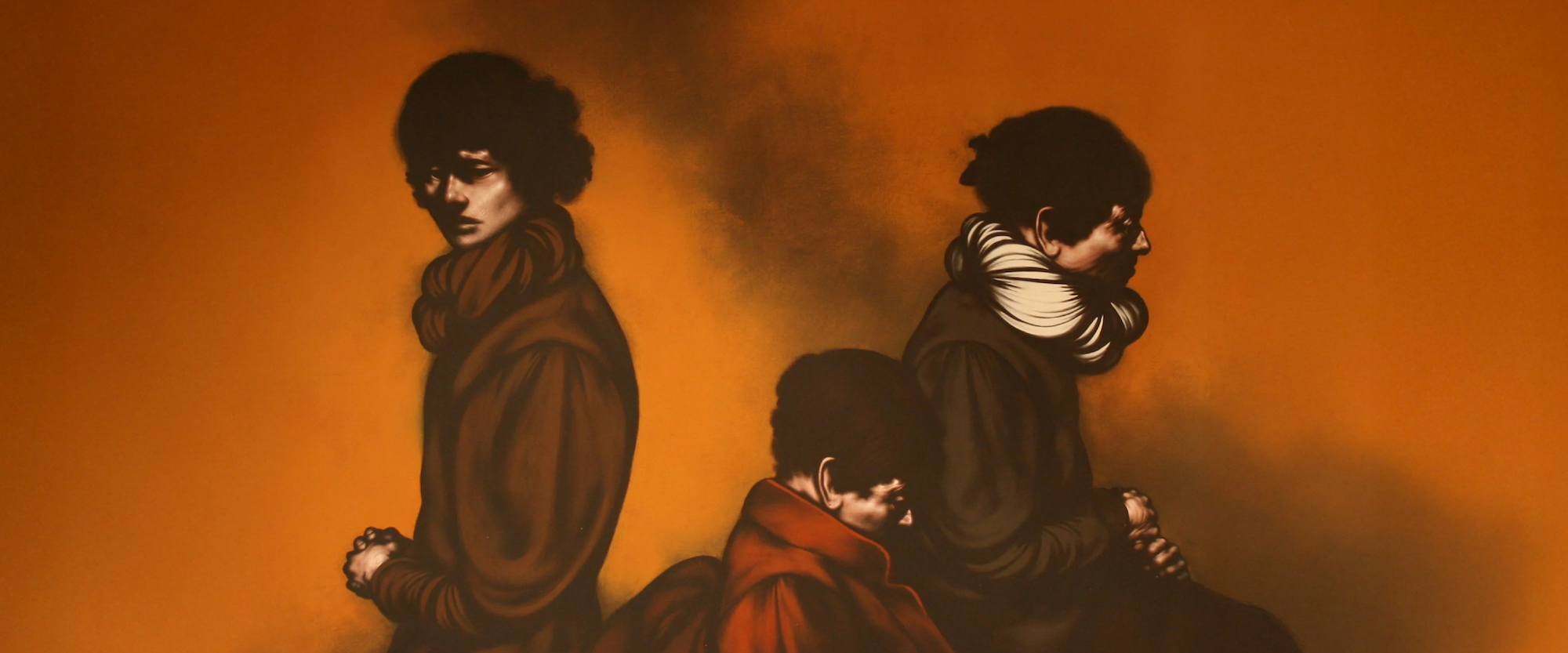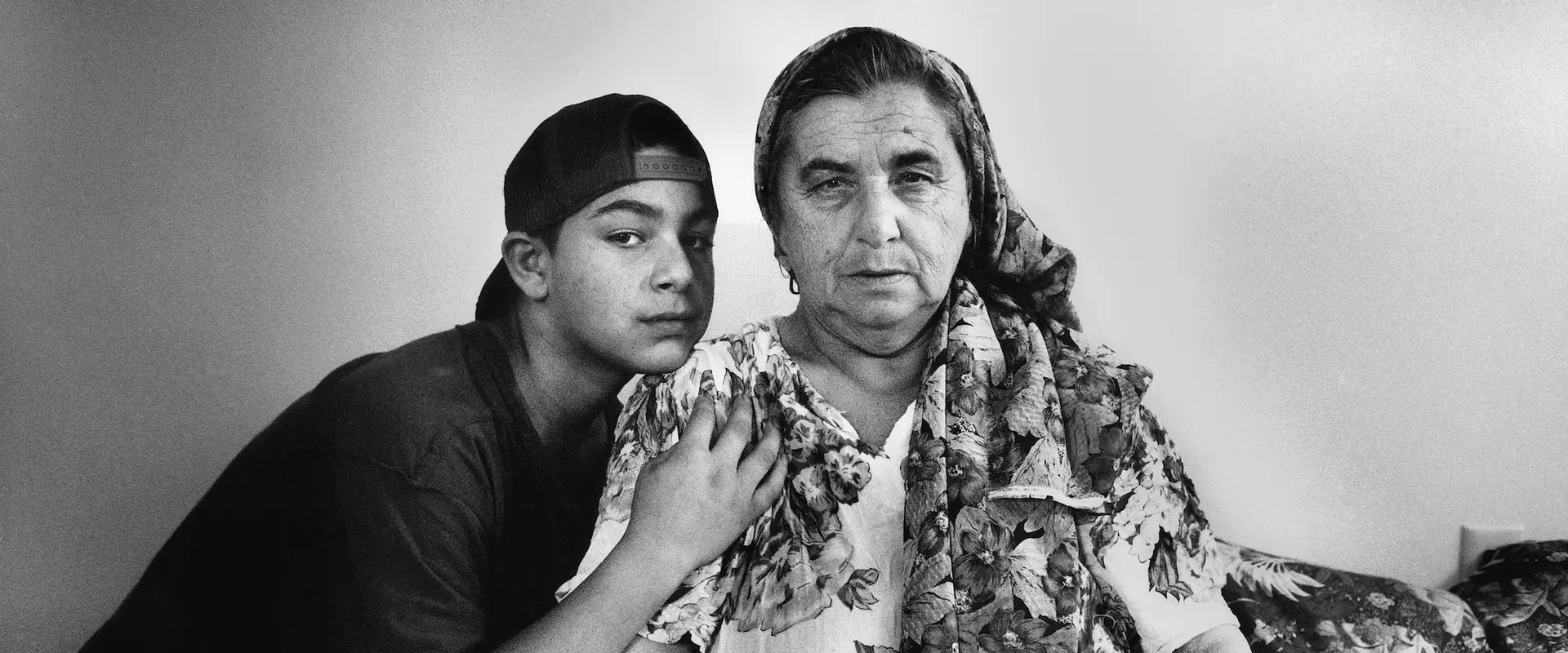
Featuring works by Salvador Dalí, Diego Rivera, Frida Kahlo, Raúl Anguiano, José Clemente Orozco, Olga Costa, Rufino Tamayo, David Alfaro Siqueiros, Jesús Guerrero Galván, Francisco Zúñiga, Roberto Montenegro, Rafael Coronel, Antoni Gaudí, & more.
Curated by Katherine Burton Jones & Nicholas A. Mestas
Editorial contributions by Diego Javier Luis, Ph.D., Department of History, Johns Hopkins University
Presented in collaboration with


Since the colonial era, artists in Latin America and Spain have confronted realities shaped by change and tumult: wars, dictatorships, revolutions, cultural rebirths, and social struggles. In this crucible of transformation, artistic expression documented a refuge for the spirit, a vision of what might be, and a space for redefining oneself.
Huellas y Horizontes explores these histories of severance and continuity, addressing the tensions that manifest between exile, belonging, domination, and the establishment of national identities. Across the included works, themes of collectivity, religious syncretism, mestizaje, colorism, exoticism, cultural hybridity, and reclamation emerge.
Shaped by overlapping trajectories of colonialism, revolution, and modernist movements that transcended national borders, artists from these interconnected lands created works that captured the pulse of a time defined by rapid and transformative change.
Their narratives remind us that the questions they grappled with — about identity, belonging, and cultural survival — remain just as resonant today.
Presented in collaboration with




Huellas y Horizontes is made possible through the generous support of the Zapanta-Alder & Rebecca Zapanta Family Collection, Z.A. Lawyers, Empowered with Gina™, and the Saunders Ohana Family Trust.
Featured image: Rafael Coronel, Carperos II, 1980. The Zapanta Family Collection.
- Upcoming Events:
Tue, Sep 23 | Exhibit
Saturday, November 1, 2025, 2–5 PM |
Sat, Dec 6 | Archives Conversation
Saturday, December 6, 2025, 2–5 PM | RSVP here.
Moderated by archivist and public historian Moriah Ulinskas, this conversation will address how artists and local organizations work with historical and community archives. Speakers include Lylliam Posadas, co-founder and co-director of Your Neighborhood Museum; and artists Leah King, and Camille Wong. The program concludes with a live music performance by Leah King at 4:00 PM.
About the Panelists
Lylliam Posadas
Lylliam Posadas is the Co-Founder and Co-Director of Your Neighborhood Museum and the Colonial Pathways Repatriation Manager at the Museum of Us. Lylliam has over 15 years of experience in repatriation and focuses on collaborative program development, community-led research practices, and transformative justice practices in museums. Lylliam has field experience in Ghana, Peru, Louisiana and California, and experience facilitating repatriation, building repatriation programs, and guiding research protocols at the Fowler Museum at UCLA, the Autry Museum of the American West, and the Museum of Us. Lylliam received an M.Sc. in Technology and Analysis of Archaeological Materials from University College London, and Bachelor degrees in Anthropology and Psychology from UCLA.
Moriah Ulinskas
Moriah Ulinskas is a community archivist and public historian whose research examines histories of dispossession, focusing on how marginalized communities organized to resist displacement and how that history of resistance lies latent in archival collections today. Her work investigates both the physical displacement of minority communities and their erasure from historical memory, examining how these groups preserved their stories despite systematic exclusion from official narratives. She is a founding member of the Community Archiving Workshop (CAW), a collective of audiovisual archivists who facilitate audiovisual preservation in community-held collections. Since 2011, CAW has collaborated with 65 organizations across four continents to conduct archival preservation workshops and kickstart community archives.
Sat, Jan 17 | Artist & Curator Walkthrough
Saturday, January 17, 2026, 2–5 PM | RSVP here.
Gain deeper insights into the exhibition through 30-min curator and artist walkthroughs offered at 3 PM and 4 PM. Light refreshments will be provided.
Sat, Feb 21 | Closing Celebration
Saturday, February 21, 2026, 2–5 PM | RSVP here.
Join LACE at the Luckman Gallery for the closing celebration of A Tender Excavation. This is your last chance to view the work by the fifteen artists in the exhibition, and witness performance lectures by Artemisa Clark and Prima Jalichandra-Sakuntabhai. Light refreshments will be provided.
Katherine Burton Jones | Co-Curator
Katherine Burton Jones is the director of Harvard University’s Museum Studies graduate program at Harvard Extension School, the largest of the University’s twelve degree-granting institutions. At Harvard, she has made significant contributions for over thirty years. In addition to her role as director, she has held the position of research advisor for the program since 2004, guiding research initiatives and enhancing the curriculum to meet the evolving needs of museums and museum professionals.
Previously, Jones was the assistant dean for Information Technology and Media Services at Harvard Divinity School for nine years, where she played a crucial role in transforming the institution’s technological landscape. Her leadership during this time helped integrate advanced media services into academic programs, enhancing the overall educational experience.
From 1994 to 2000, Jones was the assistant director of Harvard’s Peabody Museum of Archaeology and Ethnology, where she championed the development of digital resources, including websites and visual aids, across all Harvard museums. Her efforts in this role significantly improved access to museum resources and enhanced visitor engagement.
Jones is a respected author and editor of influential publications on museum technology and culture, including The Wired Museum (1997), published by the American Association of Museums, and Museum Informatics: People, Information, and Technology in Museums (with Paul F. Marty, 2007), published by Routledge. Her most recent book, The Invisible History of Museum Computing (with Paul F. Marty, 2025), published by the American Alliance of Museums, offers a groundbreaking oral history of the field, drawing on interviews with over fifty museum technology professionals across the globe. Her extensive academic portfolio includes numerous articles and presentations on museum studies and the art world.
Her research lies at the intersection of technology and museum practice, particularly in applying artificial intelligence, machine learning, and natural language processing to enhance museum databases. Jones is exploring how these technologies can address challenges related to deaccessioning, improve visitor engagement, and analyze the language used in collection descriptions to make them more accessible and less derogatory. She is additionally leveraging museum data to provide insights into pressing global issues, such as climate change, ensuring that museums remain relevant and impactful in today’s society.
Jones is also a highly respected industry consultant, specializing in strategic planning, particularly in the areas of technology integration for higher education and non-profit organizations. Over the last two decades, she has provided expert consultancy services to various museums in the United States and abroad, helping these institutions navigate complex strategic challenges.
She is deeply engaged in the non-profit sector, dedicating her time and expertise to several organizations in New England. She currently serves on the Museum Committee of the International Tennis Hall of Fame and Museum in Newport, Rhode Island, where she contributes to the stewardship of the museum’s collection and programming. Furthermore, she serves on the board of the Waterworks Museum in Chestnut Hill, Massachusetts, as well as the New England Sports Museum, actively supporting initiatives that celebrate regional sports history.
Diego Javier Luis, Ph.D. | Editorial Contributor
His first book, The First Asians in the Americas: A Transpacific History (Harvard University Press), follows the journeys of both free and enslaved Asians who traveled from the Philippines to Mexico, Central America, Peru, and Spain between the 1500s and early 1800s. The book reveals how these individuals navigated colonial society, encountered racial boundaries, and resisted enslavement, ultimately transforming the cultural and social fabric of the Americas.
Luis’s current project, Manila and Acapulco: A Tale of Two Cities in the Early Modern Black Pacific, turns to the overlooked history of African communities whose lives intersected with the Pacific world. By tracing these untold stories, he sheds light on the ways African and Asian diasporas shaped both sides of the ocean.
He conducts archival research in Spain, Mexico, the Philippines, and the United States, working across languages and borders to bring forward voices too often excluded from traditional histories. Through his scholarship, Luis invites us to see Latin America and the Pacific not as isolated regions, but as deeply interconnected worlds linked by migration, exchange, and shared struggles for freedom.
Exhibition Hours
Tuesday through Friday
12:00 p.m. – 5:00 PM, or by appointment
During stage presentations
Open 1 hour prior to start time
Admission to The Luckman Gallery is free of charge.
Parking
Parking is available on the top deck of Structure C, located directly in front of The Luckman.
Daily guest permits can be purchased at physical pay stations located in pay lots and through the PayByPhone App. These permits are virtual and require vehicle plate information.
1 hour: $3.00
4 hours: $5.00
All day: $10.00
If using PayByPhone, the location number for Structure C is 4129.
- Past Events:



